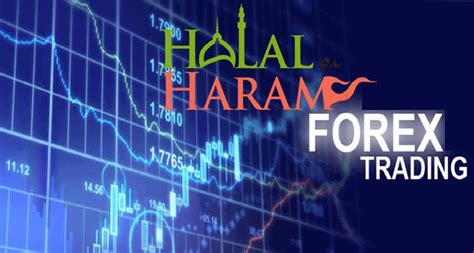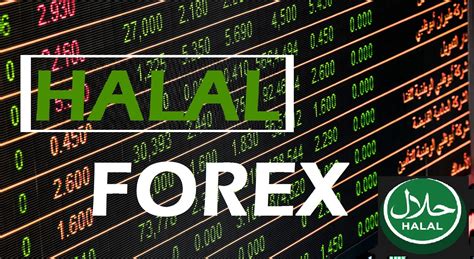Table of contents
The question of whether forex trading aligns with Islamic finance principles is a subject of ongoing discussion among scholars and traders. Halal Forex Trading requires adherence to Sharia guidelines, ensuring that transactions avoid interest (riba), excessive uncertainty (gharar), and gambling-like speculation (maisir). The structure of forex markets, the use of leverage, and the presence of swap fees raise concerns about compliance with Islamic ethics. Understanding the conditions that make currency trading permissible under Islamic law helps traders make informed decisions while maintaining financial integrity. Ethical trading approaches and Sharia-compliant account options provide avenues for engaging in currency markets without violating religious principles.
Foundations of Halal Forex Trading
The debate over forex trading in Islamic finance stems from its potential conflicts with key principles such as riba prohibition, gharar avoidance, and ethical investing. Halal Forex Trading must align with these guidelines to ensure compliance with Sharia law. Examining core financial concepts and their implications clarifies whether currency trading can be structured within Islamic finance principles.

Understanding Riba and Why It Is Prohibited in Forex
Riba refers to any form of interest-based transaction, strictly forbidden in Islamic finance. In forex trading, swap fees—interest charged on positions held overnight—are a primary concern.
Swap fees violate Sharia principles: These are essentially interest charges applied when traders hold positions beyond the trading day.
Islamic accounts remove riba: Many brokers offer swap-free accounts to eliminate interest, making trading permissible.
Profit-sharing as an alternative: Some financial models, such as murabaha, provide interest-free structures in line with Islamic finance.
Understanding how riba affects forex transactions helps traders navigate the market while maintaining ethical compliance.
Gharar and Maisir in Forex Transactions
Excessive uncertainty (gharar) and gambling (maisir) are forbidden under Sharia law. Certain forex trading practices may resemble speculation, which raises concerns about compliance.
Gharar in currency trading
Uncertainty in forex contracts can result in financial risks that contradict Islamic finance principles.
Transparency and clear contract terms reduce gharar, ensuring Sharia compliance.
Maisir and speculative trading
High-frequency trading and excessive leverage can turn forex into gambling-like activities.
Risk management strategies, such as stop-loss orders, mitigate speculative risks.
Permissible trading structures
Ethical forex trading involves informed decision-making based on market analysis.
Adopting fundamental and technical analysis reduces reliance on speculative actions.
Regulatory guidelines help traders adhere to Islamic ethics by minimizing uncertainty and speculation.
The Role of Sharia Compliance in Financial Markets
Islamic finance operates on ethical investment principles, requiring strict adherence to Sharia law. Scholars and financial regulators evaluate whether financial instruments align with these rules.
| Aspect | Sharia Compliance Considerations | Forex Trading Application |
|---|---|---|
| Riba Prohibition | Interest-free transactions required | Swap-free accounts eliminate interest charges |
| Gharar Avoidance | Contracts must be transparent and fair | Clear forex contract terms reduce uncertainty |
| Asset Backing | Trades must involve tangible assets | Some forex instruments may lack direct asset backing |
| Ethical Investing | Investments should benefit society and avoid exploitation | Some forex products align with ethical investment principles |
Sharia compliance ensures that financial markets operate within ethical boundaries, fostering trust and fairness in trading.
The Importance of Asset-Backed Trading in Islam
Islamic finance requires financial transactions to be backed by tangible assets, preventing speculative or fictional trades.
Forex trading often lacks direct asset ownership, leading to concerns about compliance with Islamic finance principles.
Precious metals and commodities offer asset-backed alternatives, making them preferable under Sharia guidelines.
Islamic financial institutions promote ethical investing, ensuring that currency-related transactions involve real-world economic value.
By focusing on asset-backed investments, traders can align forex activities with ethical financial practices.
Islamic Bonds vs. Forex Trading: A Comparative Perspective
Islamic bonds (sukuk) and forex trading represent two different financial models, each with distinct implications for Sharia compliance.
Islamic bonds are asset-backed, providing a stable and Sharia-compliant investment structure.
Forex trading is more volatile, often relying on speculation rather than underlying assets.
Profit-sharing mechanisms in sukuk align with Islamic ethics, whereas forex trading may involve elements of uncertainty and leverage.
Understanding the differences between these financial instruments helps investors make informed decisions in accordance with Sharia principles.

Halal Forex Trading Accounts and Platforms
Sharia-compliant forex trading requires the elimination of interest-based transactions and adherence to ethical investment principles. Halal Forex Trading accounts and platforms provide structures that align with Islamic finance guidelines. Evaluating swap-free accounts, leverage options, and platform transparency helps traders participate in forex while ensuring compliance with Sharia law.
Swap-Free Accounts and Their Role in Islamic Forex Trading
Islamic forex trading requires the removal of riba (interest), which is present in traditional forex accounts through swap fees. Swap-free accounts address this issue by offering an alternative structure.
No overnight interest charges: These accounts eliminate swap fees, ensuring compliance with Sharia law.
Halal trading platforms support ethical investing: Many brokers provide swap-free options specifically for Muslim traders.
Transaction fees instead of interest: Some brokers replace interest-based swaps with administrative fees, which must be evaluated for compliance.
Transparency is crucial: Hidden charges or disguised interest could violate Islamic finance principles.
Choosing a reliable broker that offers genuine swap-free accounts ensures that forex trading remains in accordance with Islamic guidelines.
Features of a Halal Trading Platform
Forex trading platforms must incorporate Sharia-compliant features to qualify as halal. Ethical considerations, cost structures, and trading conditions determine whether a platform meets these standards.
| Feature | Sharia Compliance Consideration | Impact on Halal Forex Trading |
|---|---|---|
| Swap-Free Account Support | Must eliminate overnight interest fees | Prevents riba-based transactions |
| Transparent Fee Structure | No hidden charges or interest-based commissions | Ensures ethical cost transparency |
| Low Commissions & Tight Spreads | Reduces excessive costs and promotes fair trading | Aligns with Islamic ethics |
| Leverage Restrictions | Must avoid interest-based borrowing | Helps prevent gharar in forex trading |
| Regulated by Islamic Authorities | Sharia advisory board oversight is recommended | Confirms compliance with Islamic finance principles |
A halal trading platform ensures that every aspect of the trading experience adheres to Islamic financial ethics, enabling Muslim traders to participate confidently in forex markets.
Leverage in Forex: Permissible or Not?
Leverage allows traders to control larger positions with a smaller initial investment, but it introduces concerns about compliance with Islamic finance principles.
Potential issues with leverage
Conventional leverage involves interest charges, conflicting with riba prohibition.
Overuse of leverage increases risk, which may lead to speculative trading (maisir).
Sharia-compliant leverage alternatives
Some brokers provide leverage without interest-based borrowing, ensuring compliance.
Adjusting position sizing can help traders avoid unnecessary risk while maintaining ethical investment practices.
Evaluating broker policies
Traders should verify whether the leverage provided by a broker complies with Islamic guidelines.
Reading terms and conditions ensures that leverage does not include hidden interest.
Using leverage cautiously and within ethical boundaries allows traders to participate in forex while maintaining compliance with Sharia law.
Low Commissions and Tight Spreads: Ethical Considerations
Trading costs play a significant role in maintaining an ethical forex trading structure. Commissions, spreads, and other charges must be evaluated for Sharia compliance.
Low commissions ensure fairness: Excessive fees may lead to exploitative trading conditions, contradicting Islamic finance principles.
Tight spreads improve transparency: A narrow difference between bid and ask prices ensures fairer transactions.
Hidden charges must be avoided: Ethical brokers disclose all trading costs upfront, preventing financial exploitation.
Selecting a broker with competitive pricing structures helps ensure that trading conditions remain fair and in line with Islamic financial ethics.

Risk Management in Halal Forex Trading
Managing financial risk is fundamental in forex trading, especially for those seeking compliance with Islamic finance principles. Halal Forex Trading must avoid excessive speculation while implementing ethical risk management tools. Stop-loss orders, hedging strategies, and the risk-reward ratio help traders maintain control and align their practices with Sharia guidelines.
The Role of Stop-Loss Orders in Ethical Trading
Stop-loss orders serve as a protective measure against excessive financial loss, ensuring that trading remains controlled rather than speculative.
Limits potential losses: Traders predefine an exit point to prevent substantial financial setbacks.
Prevents emotional trading: Helps traders avoid irrational decisions driven by fear or greed.
Aligns with responsible investing: Encourages a disciplined approach that reduces the likelihood of gambling-like behavior.
By integrating stop-loss orders into trading strategies, investors create a structured and risk-conscious environment that supports ethical trading.
Hedging Strategies: Reducing Risk in a Sharia-Compliant Manner
Hedging allows traders to offset potential losses by taking counterpositions in correlated financial instruments. When applied ethically, hedging strategies align with Islamic finance by managing risk without engaging in excessive speculation.
| Hedging Strategy | Sharia Compliance Consideration | Application in Forex Trading |
|---|---|---|
| Currency Pair Hedging | Avoids speculation by reducing exposure to currency volatility | Helps mitigate exchange rate fluctuations |
| Commodities as Hedge | Backed by tangible assets, making it compliant with Islamic finance | Precious metals can be used to hedge forex positions |
| Options-Based Hedging | Some structured contracts may include interest, requiring careful review | Ensuring no riba-based elements in contracts |
| Diversification Approach | Investing in multiple asset classes for balanced risk | Reduces dependency on a single currency movement |
Traders seeking halal investment strategies should ensure that hedging is used as a risk mitigation tool rather than a speculative instrument.
The Risk-Reward Ratio: Ethical Considerations in Forex
Assessing the balance between risk and potential return is essential in ethical trading. A responsible approach prevents forex trading from resembling gambling, which is strictly prohibited in Islam.
Determining a fair risk-reward ratio
A ratio of 1:2 or higher ensures that potential profit outweighs the risk taken.
Lower risk-reward ratios may indicate excessive risk-taking, which contradicts ethical trading practices.
Balancing risk while maintaining Sharia compliance
Ethical forex traders focus on minimizing risk rather than maximizing speculative gains.
Implementing stop-loss orders alongside risk-reward analysis prevents unnecessary exposure.
Avoiding excessive speculation
Positions should be based on fundamental and technical analysis rather than market speculation.
Excessive leverage that distorts the risk-reward ratio should be avoided to maintain compliance with Islamic finance principles.
By applying structured risk-reward management techniques, traders ensure that their financial strategies align with the ethical requirements of Halal Forex Trading.
Market Analysis Techniques for Halal Forex Trading
Successful forex trading requires a disciplined approach grounded in financial analysis rather than speculation. Halal Forex Trading depends on data-driven techniques that comply with Islamic finance principles, ensuring that decision-making is based on tangible information rather than gambling-like behavior. Understanding market analysis methods such as technical and fundamental analysis, trend analysis, and economic indicators allows traders to develop informed and Sharia-compliant strategies.

Technical Analysis and Its Role in Ethical Trading
Technical analysis offers a structured approach to trading by analyzing historical price movements and identifying recurring patterns. Unlike speculative strategies, this method ensures that trading decisions are made with factual data.
Chart patterns reveal market structure: Formations such as head and shoulders, flags, and wedges help predict price direction.
Indicators provide objective signals: Moving averages, RSI (Relative Strength Index), and Bollinger Bands help gauge momentum and potential reversals.
Prevents emotional trading: Objective technical indicators reduce reliance on impulse-driven decisions.
Enhances ethical investing: A rules-based strategy ensures transparency and prevents excessive risk-taking.
Traders using technical analysis rely on past data to anticipate future price movements, aligning forex trading with Islamic ethical standards.
Fundamental Analysis: Evaluating Economic Indicators
Fundamental analysis examines macroeconomic conditions to assess a currency's value. Unlike short-term speculation, this method focuses on real-world financial stability.
| Economic Indicator | Impact on Forex Trading | Relevance to Halal Trading |
|---|---|---|
| Gross Domestic Product (GDP) | Measures economic performance and stability | Encourages investments in strong economies |
| Inflation Rates | Affects purchasing power and interest rate policies | Helps traders identify sustainable growth |
| Unemployment Data | Indicates workforce strength and economic health | Supports ethical decision-making in forex |
| Central Bank Policies | Impacts currency valuation through monetary policy | Helps traders monitor Sharia-compliant market movements |
| Trade Balance | Reflects a country’s import-export strength | Determines long-term currency stability |
Fundamental analysis ensures that forex trading is grounded in economic reality rather than short-term price speculation, promoting ethical financial practices.
Market Sentiment: A Psychological Perspective on Forex
Market sentiment refers to the collective outlook of traders toward currency movements. Understanding sentiment helps traders avoid impulsive decision-making and focus on ethical trading strategies.
Identifying bullish and bearish sentiment
A bullish market suggests rising prices, while a bearish market indicates declines.
Ethical traders rely on objective indicators rather than speculative trends.
Assessing investor psychology
Overconfidence and panic selling can create price volatility.
Avoiding emotional reactions prevents speculative trading behavior.
Utilizing sentiment indicators
Commitment of Traders (COT) reports and Volatility Index (VIX) provide insights into investor positioning.
Sentiment analysis tools help traders make data-driven decisions.
Recognizing sentiment trends allows traders to anticipate market movements without engaging in excessive speculation, maintaining compliance with Halal Forex Trading principles.
Trend Analysis: Identifying Patterns for Informed Decisions
Trend analysis helps traders make calculated decisions based on historical price movements rather than impulsive speculation.
Short-term vs. long-term trend identification: Recognizing whether a movement is a short-term correction or a long-term shift helps prevent premature decisions.
Support and resistance levels indicate entry points: Key price areas help traders execute trades based on tested levels rather than speculation.
Reduces speculative trading risk: Trend-following strategies focus on existing market directions rather than predicting unknown shifts.
Helps traders align with Sharia compliance: A disciplined, data-driven approach avoids elements of gambling in forex transactions.
Adopting a structured approach to trend analysis enables traders to make informed decisions while staying within Islamic finance guidelines.
Price Action Strategies and Halal Trading Approaches
Price action trading eliminates reliance on lagging indicators, instead focusing on pure market data and real-time price movements.
Candlestick formations provide real-time insights: Patterns such as pin bars, engulfing candles, and hammers help forecast price trends.
Market structure guides decision-making: Identifying highs, lows, and breakouts enables traders to act rationally.
Avoids high-risk speculation: Ethical trading based on price action prevents over-reliance on unverified assumptions.
Promotes disciplined risk management: Price action ensures that traders react to actual market behavior rather than emotional biases.
Focusing on price action ensures that traders make rational decisions rooted in real-world price movements rather than speculative forecasts.
Economic Indicators and Their Impact on Currency Pairs
Macroeconomic events influence currency price movements, making it essential for traders to monitor key indicators when engaging in Halal Forex Trading.
Interest rate decisions affect forex trends: Central bank policies influence currency strength, impacting forex valuations.
Trade balance data highlights currency stability: A country with a strong export market tends to have a more stable currency.
Political and geopolitical events create market volatility: Elections, economic reforms, and global crises impact forex prices.
Employment reports reveal economic strength: High employment rates support currency appreciation, while rising unemployment weakens it.
Monitoring economic indicators ensures that forex traders base their decisions on actual market conditions rather than speculation.
Regulatory and Scholarly Perspectives on Halal Forex Trading
The interpretation of forex trading under Islamic finance principles depends on the insights of scholars and regulatory bodies. Halal Forex Trading requires guidance from Sharia experts, compliance officers, and financial institutions to ensure that transactions align with ethical investing standards. Understanding regulatory frameworks and global perspectives provides traders with the knowledge needed to operate within Sharia-compliant boundaries.
The Role of Islamic Scholars in Defining Halal Forex Trading
Islamic scholars play a critical role in determining the permissibility of forex trading under Sharia law. Their expertise in riba prohibition, gharar avoidance, and asset backing helps shape halal trading guidelines.
Fatwas clarify the stance on forex trading: Scholars issue rulings that determine whether specific trading practices comply with Islamic finance principles.
Ethical considerations in leverage and speculation: Scholars analyze the impact of leverage, overnight interest (swap fees), and speculative trading (maisir) in forex markets.
Continuous re-evaluation of financial markets: The evolution of trading instruments and platforms requires ongoing scholarly assessment to ensure compliance with Sharia law.
Islamic scholars help traders make informed decisions by providing authoritative guidance on financial practices that align with Halal Forex Trading.
The Importance of a Sharia Advisory Board in Forex Regulations
Sharia advisory boards oversee financial institutions and brokers, ensuring that their offerings align with Islamic finance principles. Their role in regulating forex products is essential for maintaining ethical trading standards.
| Function of Sharia Advisory Boards | Impact on Halal Forex Trading |
|---|---|
| Reviewing financial products | Ensures that forex accounts, contracts, and leverage structures comply with Sharia principles. |
| Certifying halal trading platforms | Brokers must obtain approval for swap-free accounts and Islamic trading conditions. |
| Monitoring compliance | Regular audits ensure that trading terms remain in line with Islamic finance. |
| Issuing Sharia-compliant guidelines | Provides traders with ethical frameworks for forex trading. |
| Educating market participants | Offers knowledge on ethical investing and risk management within Islamic finance. |
Sharia advisory boards serve as a regulatory backbone, ensuring that forex trading platforms maintain integrity and transparency in their financial offerings.
Compliance Officers and Their Role in Ensuring Halal Trading
Compliance officers are responsible for overseeing Islamic accounts, forex regulations, and adherence to ethical financial principles. Their role is crucial in maintaining the credibility of halal forex trading platforms.
Ensuring transparency in Islamic forex trading
Compliance officers verify that swap-free accounts truly eliminate interest charges rather than disguising them as fees.
Their oversight ensures that forex transactions remain free from riba and speculative elements.
Monitoring adherence to Sharia guidelines
Financial institutions must follow guidelines set by Sharia advisory boards to maintain compliance.
Any new forex product introduced must undergo regulatory review for Sharia compliance.
Preventing unethical trading practices
Compliance officers enforce rules against excessive leverage, ensuring that traders engage in ethical forex investing.
They oversee risk management tools like stop-loss orders to reduce speculative behavior.
By maintaining strict oversight, compliance officers help establish a transparent and ethical environment for Halal Forex Trading.
The Global Perspective: Halal Forex Trading Regulations in Different Countries
Islamic finance regulations vary across countries, influencing how forex trading is structured in different markets. Traders must be aware of regional differences in Sharia compliance frameworks.
Middle East & GCC countries: Strict adherence to Islamic finance principles, with Sharia advisory boards actively monitoring forex brokers.
Malaysia & Southeast Asia: The Islamic Financial Services Act (IFSA) ensures regulatory compliance for halal forex trading, offering well-defined guidelines for brokers.
United Kingdom & Europe: Regulatory bodies like the Financial Conduct Authority (FCA) recognize Islamic accounts, allowing traders access to Sharia-compliant forex platforms.
North America & Australia: Halal forex trading remains largely unregulated, with Islamic traders relying on international Sharia guidelines.
Understanding global regulations helps traders navigate forex markets while ensuring compliance with Islamic financial ethics.

Conclusion
Determining whether forex trading aligns with Islamic principles requires a deep understanding of Sharia compliance and financial ethics. Halal Forex Trading is possible when transactions eliminate interest-based elements, excessive speculation, and uncertainty while maintaining transparency and fairness. Swap-free accounts, ethical trading strategies, and risk management tools provide pathways for traders who wish to participate in currency markets while adhering to Islamic guidelines. Regulatory oversight from Islamic scholars and compliance bodies further ensures that trading remains within ethical boundaries. By following structured approaches that emphasize asset backing, profit-sharing, and responsible market participation, traders can engage in forex with confidence, ensuring both financial success and religious integrity.
Forex can be considered halal if trading is conducted without interest (riba), excessive speculation (maisir), or uncertainty (gharar). Using swap-free accounts, following Sharia-compliant strategies, and avoiding leverage that incurs interest helps ensure compliance with Islamic finance principles.
A halal forex trading account must eliminate prohibited elements under Islamic finance. The key factors include:
No swap fees or interest charges (riba-free)
Transparency in trading conditions
No excessive speculation or gambling-like behavior
Fair and ethical profit-sharing methods
Risk management ensures that traders engage in forex trading responsibly and ethically. Islamic finance encourages structured risk controls through:
Stop-loss and take-profit orders to minimize uncertainty
Hedging strategies that align with Islamic finance
Responsible position sizing to avoid gambling-like speculation
Yes, Islamic forex trading platforms are designed to meet Sharia compliance by removing interest-based transactions. These platforms offer swap-free accounts, ethical trading conditions, and ensure that their services align with Islamic finance regulations.
Leverage in halal forex trading is only permissible if structured without interest. Some Islamic brokers offer interest-free margin trading, where traders can use leverage without incurring riba. However, excessive leverage that promotes speculation may not be compliant with Islamic ethics.


